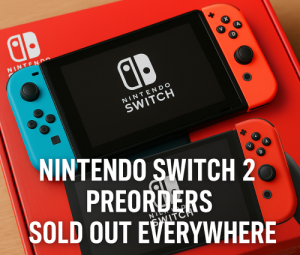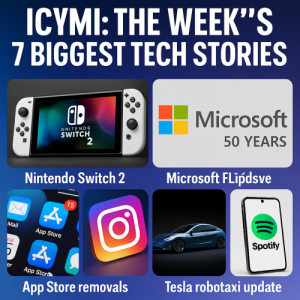Salesforce Strikes $8 Billion Deal for Informatica: What It Means for the Future of Data

Salesforce Strikes $8 Billion Deal for Informatica: What It Means for the Future of Data
In a bold move signaling its deepening push into data integration and enterprise AI, Salesforce has reportedly struck a massive $8 billion acquisition deal with Informatica, a leader in cloud data management. The agreement, still awaiting final regulatory approval, could reshape how businesses handle data in the age of AI.
Why Salesforce Wants Informatica
Salesforce has long been known for its customer relationship management (CRM) software, but in recent years, it has been broadening its scope—investing heavily in AI, automation, and data platforms.
With Informatica, Salesforce gets a company specializing in cloud-based data integration, master data management, and governance. These tools are essential for modern businesses struggling to wrangle data from dozens—if not hundreds—of systems.
This deal isn’t just about acquiring technology—it’s about owning the plumbing behind enterprise data. In a world where AI is only as good as the data it learns from, Informatica gives Salesforce the clean, structured datasets needed to fuel smarter automation.
A Smart Bet on Enterprise AI
Informatica has made a name for itself by helping companies migrate and manage data across hybrid cloud environments. Its AI-powered platform, CLAIRE, enables organizations to automate data discovery, quality checks, lineage tracing, and policy enforcement—all crucial for compliance and scalability.
For Salesforce, which has been integrating Einstein AI across its platforms, Informatica’s offerings could act as the backbone for more intelligent workflows and customer insights.
By combining Salesforce’s front-end intelligence with Informatica’s backend precision, the company is betting big that clean, governed data will be the differentiator in the AI arms race.
What the $8 Billion Price Tag Signals
Salesforce’s willingness to spend $8 billion shows two things: confidence in the long-term growth of enterprise data tools and a renewed appetite for M&A after slowing acquisitions in 2023.
The deal follows Salesforce’s previous high-profile acquisitions like Slack ($27.7 billion) and Tableau ($15.7 billion). But unlike those headline-making purchases, Informatica operates in a more technical and less visible layer of the enterprise stack.
Still, it’s a critical one.
As companies adopt more AI solutions, the importance of data infrastructure has skyrocketed. According to IDC, global spending on data management solutions is expected to exceed $150 billion by 2027. Salesforce clearly wants a bigger piece of that pie.
Market Reaction and Industry Response
Early reactions from analysts have been mostly positive. While some investors remain cautious about Salesforce’s spending, others see this as a strategic pivot toward higher-margin, infrastructure-based software offerings.
“Informatica’s platform complements Salesforce’s cloud ecosystem perfectly,” said Raymond James analyst Brian Peterson. “It’s a foundational piece for enterprise AI deployment.”
Informatica’s stock jumped on the news, while Salesforce shares saw a modest bump, reflecting investor optimism about the potential synergies.
What’s Next?
If the deal clears regulatory hurdles, Salesforce is expected to begin integrating Informatica’s products into its broader suite—particularly across Sales Cloud, Data Cloud, and Marketing Cloud.
This could mean tighter data governance tools for Salesforce customers, improved AI recommendations, and faster time-to-insight for enterprises managing vast data volumes.
More broadly, this acquisition could trigger a wave of consolidation in the data management space, as tech giants compete for control over data infrastructure that powers next-gen AI.
Final Thoughts
The Salesforce–Informatica deal is more than just a multi-billion-dollar acquisition—it’s a glimpse into where the enterprise tech world is headed. As AI becomes embedded in everything from sales to customer service, companies that can control and refine the underlying data are set to lead.
And with this deal, Salesforce is staking its claim at the heart of the data economy.






